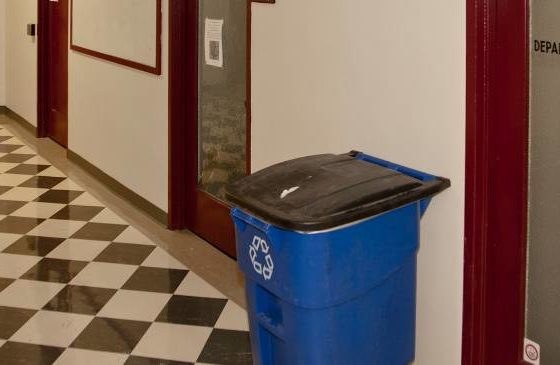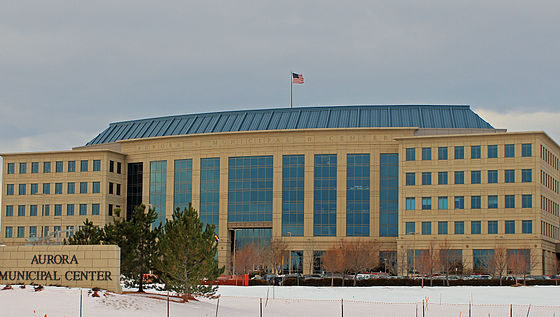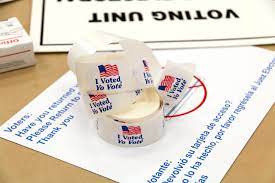This article is part three of a seven-part series that focuses on how sustainability impacts students on a college campus. This series will go in-depth on topics that intersect with sustainability, such as energy use, food waste, environmental racism, recycling, compost and more.
The world of sustainability can be overwhelming and expensive. Environmental activists in Denver have pushed residents to invest more of their time and money into recycling and compost.
Compost
What exactly is composting? Compost is decomposed organic matter. The process of composting involves recycling organic material like food scraps, and it then forms into a beneficial element that can be added to any soil.
The city of Denver supports both composting and recycling. It is possible to compost in Denver by signing up for the green bin service and paying $29.25 every three months. Currently, 27,312 people are involved in this process.
Composting may seem confusing, but it can be simple if you break it down. The items that can be composted are food scraps, non-recyclable paper, yard debris, and miscellaneous items like pet hair, chopsticks, stir and popsicle sticks.
There are many plans in the works to further DU’s sustainability practices. Hanna Gaertner, a senior at the University of Denver, is studying how to implement an in-vessel technology at DU. The in-vessel technology consists of machines that are designed to break down organic waste at a faster rate. This compostable material is closed within a drum, silo, bin, tunnel, reactor or any form of container to produce compost.
Gaertner has been closely evaluating the benefits of in-vessel composting. She has also been looking at how vendors sell that technology to universities, how this service can reduce greenhouse gases, and how this can be educational to DU students who study microbiology and soil health.
This technology is fragile as it has to maintain a consistent temperature and moisture level. The organic material is decomposed with oxygen by a variety of microorganisms. The compost product then exits the machine which can be used to strengthen soil health. There are many benefits to this process, such as waste diversion, reduced collection costs, usable soil and control over leachate and other composting methods.
Crimson Compost is a project at DU that will focus on increasing access to composting for students or faculty who live off-campus. It will allow them to use a conveniently placed compost toter. A toter is a plastic tilt truck that helps move around large and heavy volumes of waste, like compost to its final disposal area. The compost toter will be placed at the south end of campus at the English Learning Center. This will make the program easily accessible to students both on and off-campus.
Hannah Cooper, an intern for the Center of Sustainability, says that “the Center for Sustainability hopes that Crimson Compost will encourage more students to start and continue composting once they move off-campus. This project will not only enable more students to help divert more waste from the landfill, a large goal for the Waste Team and Center, but will also help produce funds to support our awesome interns and other projects for the future.”
Cooper says that “right now, we are working on the logistics of the program and hope to get a few people to sign up this spring before going full swing next fall quarter. We want to help students have an affordable option to begin this process—one that is secure and one that is run by a trusted program of DU.”
In the warmer months, sustainability activists encourage students to either start their own compost or take their scraps to the Pearl Street farmers market. The market has a vendor, Master Composter Program, that educates Denver residents on everything to know about compost and recycling. This program has classes, events and gardens to encourage the community to compost.
The innovation and development around compost are continuously growing. Sustainability practices can be an investment of time, education and money, but it is well worth it to the environment.
Recycle
Have you mindlessly recycled pizza boxes, plastic bags and coffee cups? Don’t worry, most of us are guilty of it and probably unaware that these are not recyclables. Recycling can be a complicated act that often goes overlooked.
Recycling helps reduce pollution and is extremely important in combating the world’s current climate crisis. A few tips for recycling are to make sure the materials are dry, clean and free of food and liquid residue before recycling. The goal is for the materials to be clean enough to avoid contaminating other materials. For example, you cannot recycle pizza boxes because the oil from the pizza cannot be separated from the fiber.
The items that can be recycled include plastic bottles with a tight lid, jars, jugs, tubs, paper, cardboard, cans, etc.
Victoria Ritchie, the communications and giving assistant for Denver’s Waste Management, emphasizes the importance of recycling and compost education. The Waste Management motto is “building value together.” They hope to achieve this by finding waste solutions around the city of Denver, mitigating the effects of climate change, putting people first and contributing to communities.
Around campus, DU has thousands of recycling bins located next to most trash receptacles. DU works with a program called “Altogether Recycling.” This service allows a variety of recyclable materials to be thrown together in the same bin. Later, the Alpine Waste and Recycling company sorts through the materials.
For communal living, the custodial staff at DU empties large recycling bins at dorms. Students are responsible for taking their own recycling out. For recycling off-campus, University House, an apartment building located on Asbury and Josephine, has recycling on-site. The only issue is that students are responsible for taking all of their recycling down to the alley since there is no bin on each floor. Additionally, University House does not compost. Sara, the assistant general manager says that they are “trying to push for it.”
In the meantime, the apartment complex sent out an email at the beginning of the year informing residents on where to go to compost, like the farmers market. They are switching to more sustainable events that encourage residents to bring their own plates and silverware and cut down on plastic waste.
Sara says that “residents need to be active,” since University House is limited in the number of resources and amount of space they have to be fully “green.”
To move closer to a “green” building, University House is gold LEED-certified. This certification is an internationally recognized system that provides verification for buildings that are designed using sustainable strategies, such as energy savings, water efficiency, carbon emissions reduction and improved indoor environmental quality. This brings DU a step closer to becoming a more sustainable campus.
The world of compost and recycling can be complex and overwhelming. Luckily, there is a multitude of resources out there that students can use to educate themselves on what materials should be thrown away, composted or recycled. There are services in the works, like Crimson Compost and the in-vessel technology, that students can begin to utilize.











